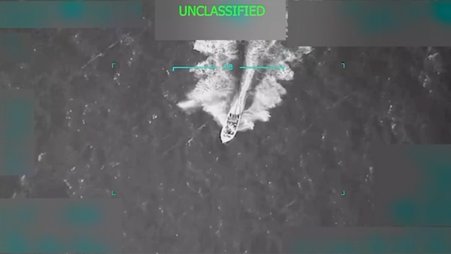Dear Friend of Press Freedom,
Watching government data disappear and transparency double standards unfold, it was another busy week tracking government secrecy.
I’m Lauren Harper, the first Daniel Ellsberg Chair on Government Secrecy at Freedom of the Press Foundation (FPF), and welcome to “The Classifieds,” our weekly newsletter highlighting how secrecy harms the public.
Disappearing data
The Trump administration is scrubbing agency websites and data.gov.
The Justice Department deleted its searchable database cataloging all of the charges and convictions relating to the Jan. 6 Capitol attack (but not before the Internet Archive captured a partial copy of the database). This coincided with President Donald Trump’s decision to pardon all convicted defendants.
The administration is also rapidly deleting datasets from data.gov, possibly in violation of the OPEN Government Data Act. As of writing, nearly 2,000 datasets have disappeared. If Trump’s first term is any indication, this will continue. During the first few months of 2017, a staggering 39,245 datasets were purged.
Grant freeze shows importance of public spending data
The Trump administration rescinded its federal grant spending freeze. The initial announcement caused confusion and legal challenges, leaving federal agencies and states to figure out what programs would be impacted.
This would have been a nearly impossible challenge without the public spending data that is required to be public, thanks to several transparency statutes, on USAspending.gov.
A quick search of the spending data shows that there are nearly 4 million active federal grants, the vast majority of which come from the Department of Health and Human Services. It also shows that the states that would have been hardest hit by the freeze would have been California, followed by New York, Texas, Florida, and Pennsylvania.
USAspending.gov is a hidden gem for reporters covering federal spending. The New York Times, for an investigation into the Homeland Security Department’s vast immigration surveillance arsenal, which is “nearly unmatched in the Western world,” used contractor data that is required to be posted.
Hypocrisy over COVID transparency
One of John Ratcliffe’s first moves as the newly confirmed CIA director was to declassify the agency’s low-confidence intelligence assessment that the virus responsible for the COVID-19 pandemic was more likely to have originated in a lab than a market. The assessment began in the final weeks of the Biden administration, and the CIA now joins the Energy Department and the FBI in favoring the theory.
The CIA’s declassification is good, but the fact that the CIA can communicate its views on a public health crisis while health agencies, including the Centers for Disease Control and Prevention and National Institutes of Health, are being muzzled, is wrong and runs the risk of politicizing declassification.
There must be a whole-of-government approach to declassification — otherwise we lose key perspectives to help make the most informed policy decisions.
In case you missed it: Inspectors general and the Espionage Act
Earlier this week I wrote about how Trump’s firing of over a dozen inspectors general should prompt Congress to reform the Espionage Act.
If IG positions are vacant, this may result in more employees leaking to the media to expose malfeasance. That may open the door for the Trump administration to abuse the Espionage Act to target journalists and their sources for revealing information the administration wants buried.
We can only guess how often an emboldened Trump will abuse the Espionage Act during his second term. But we shouldn’t leave journalistic integrity and government oversight up to guesswork. Visit our website to learn more.
What I’m reading
Declassified CIA guide to sabotaging fascism is suddenly viral (404 Media).
In 1944, the CIA’s predecessor, the Office of Strategic Services, wrote a wartime manual to help citizens sabotage the Nazis during World War II. In 2008, the CIA declassified the manual, which encourages employees to be clumsy and work slowly. It is now, for reasons I’ll leave others to speculate on, one of the most popular books on the free archival library website, Project Gutenberg.
Bezos vs. Bezos: Amazon sues WA state over Washington Post request for Kuiper records (GeekWire). Jeff Bezos is having a meta moment. One Bezos company, Amazon, is suing Washington state to prevent the disclosure of records about its broadband satellite network to another Bezos company, The Washington Post.
If you enjoyed this roundup and aren’t yet a subscriber, subscribe to “The Classifieds” to make sure you’re up to speed on the most important secrecy stories. And while you’re at it, consider checking out FPF’s other newsletters for all the information you need to know about press freedom, digital security, and more.
Thanks for reading, and see you next time.
Transparently yours,
Lauren Harper
Daniel Ellsberg Chair on Government Secrecy
Freedom of the Press Foundation





